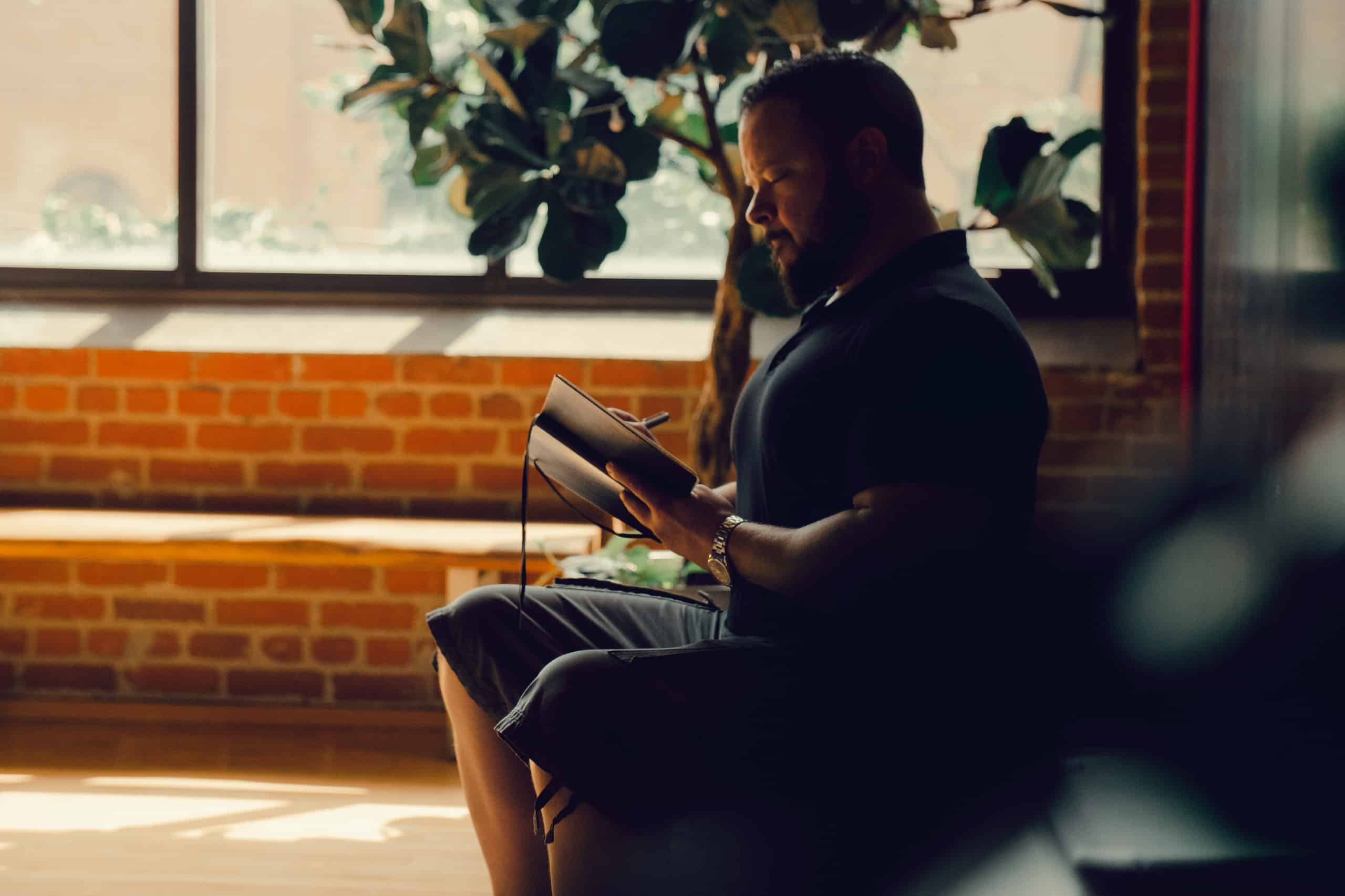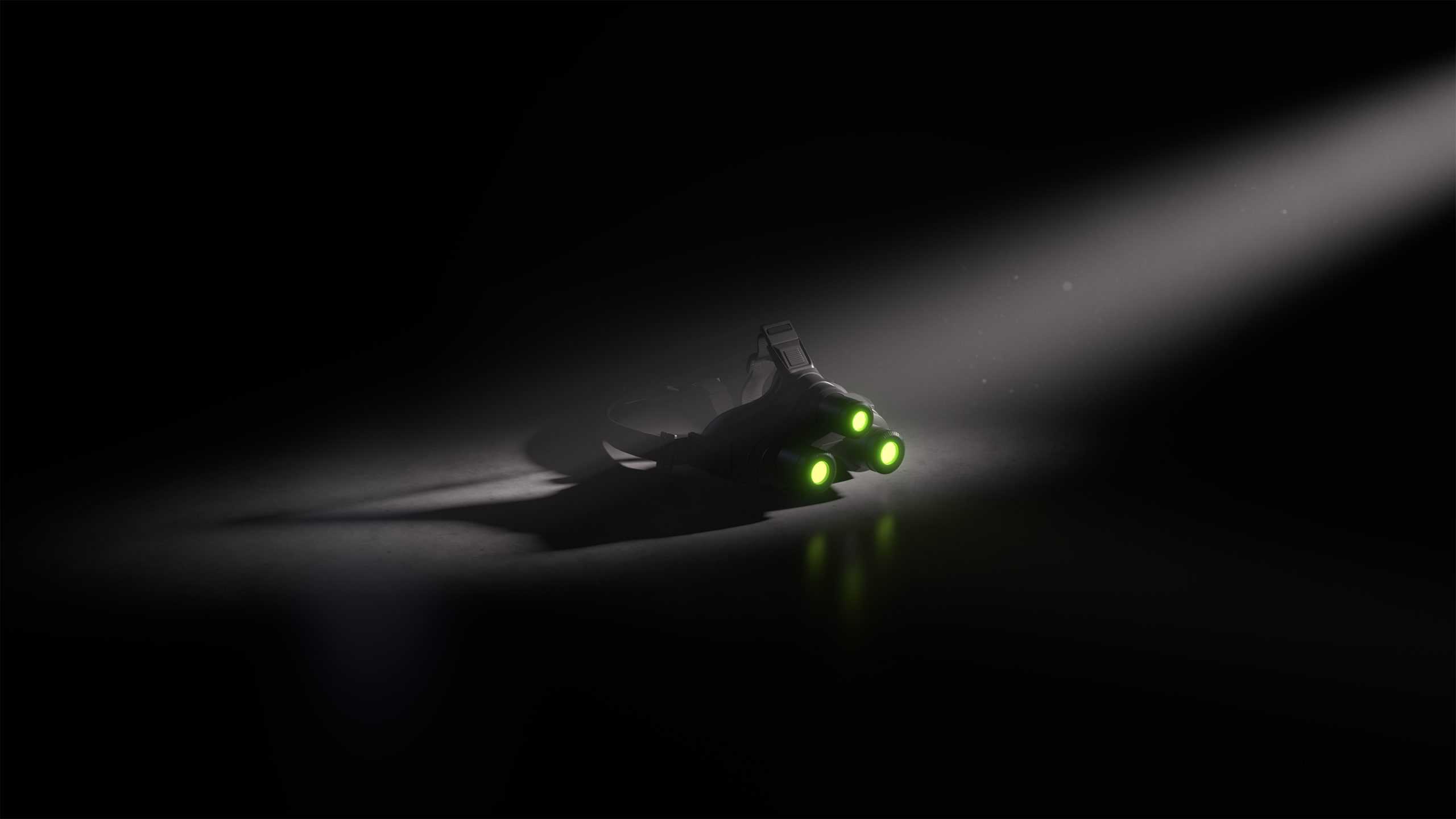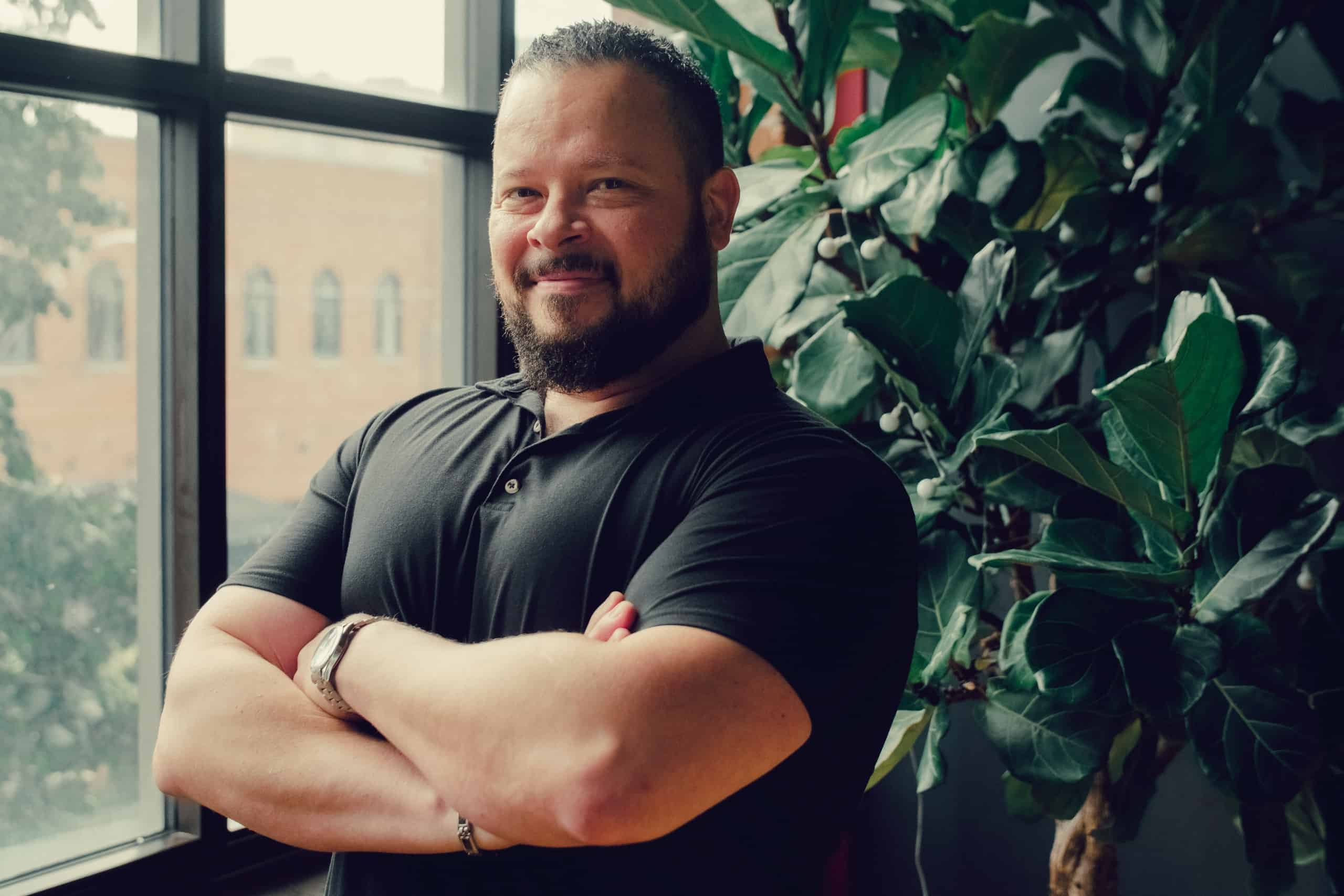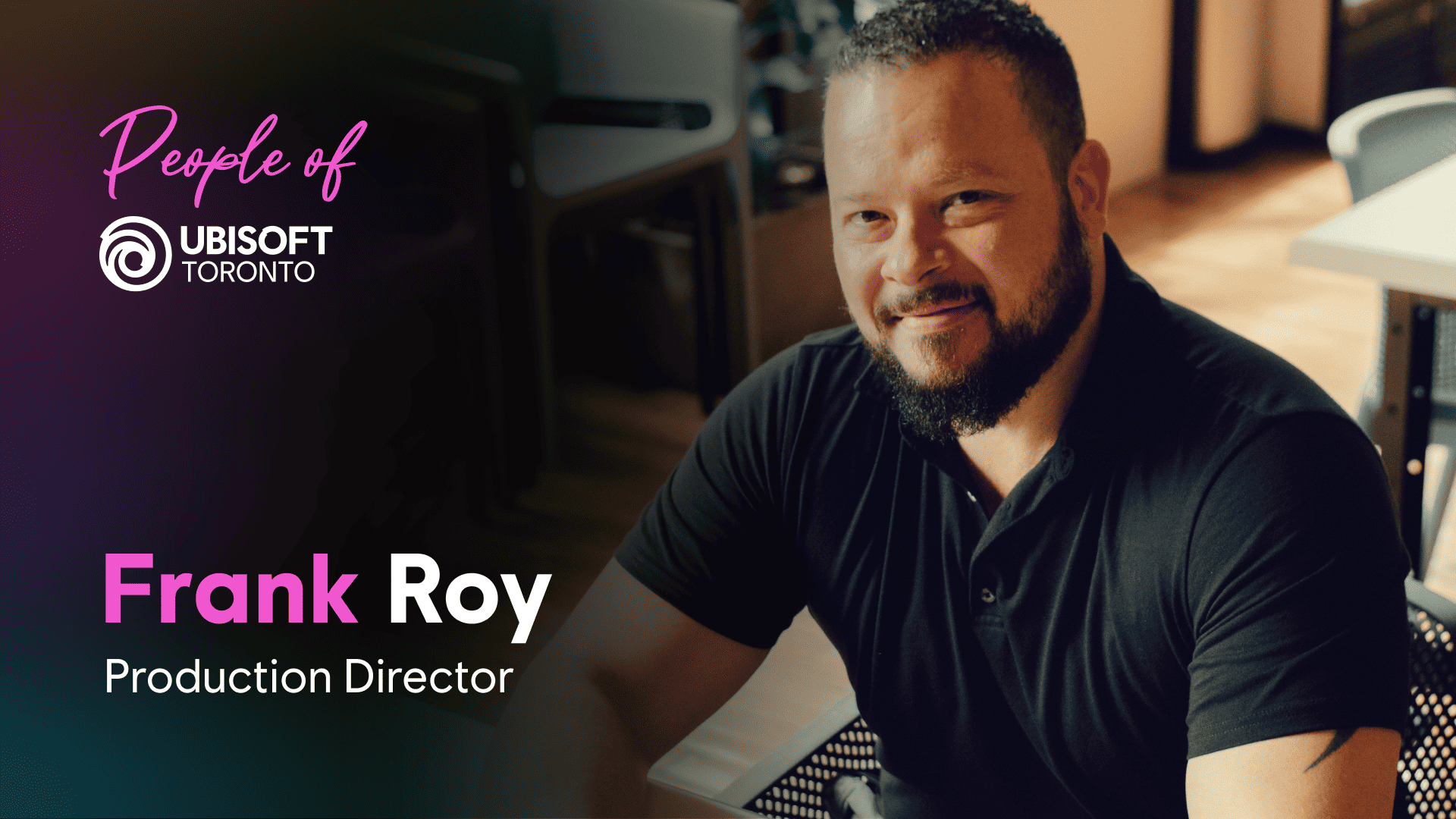If game development was an orchestra then Frank Roy would be the conductor. An industry veteran, who recently celebrated 20 YEARS with Ubisoft, he gives us an inside look at what the intricacies of production management in a massive AAA game looks like.
Hey Frank, tell us more about what you do as a Production Director. What’s your favourite thing about your role?
As Production Director, my main responsibility is to run the “production floor.” Reporting directly to the Lead Producer, we strategize our timeline and production plans while working at defining our mandate and budget with HQ. And then I proceed to break this down with the Associate Producers (AP) and Production Managers (PM). Together, we establish the processes by which we design our features and missions, or any other type of content for that matter. We establish the workflows and iteration cycle to ensure we deliver high quality, on time.
My favorite thing is when the “Plan” comes together. When you have a production “machine” that is well-oiled, best practices are in place and you’ve made certain that the team is set up for success. That means folks can express their creativity and leverage their unique skills to ship a high-quality game we can all be proud of.
What drew you to Ubisoft Toronto?
I started out as a Quality Control Tester at Ubisoft Montreal in 2003. I was fortunate to be part of those who pioneered what we call “dev testing” which consisted of embedding testers within production teams. I was even sent on missions to other studios to train them on new best practices.
When I came to Toronto, they were also looking for a Lead Tester, my role at the time, so I said, “hey, why not me?” and I was welcomed with open arms. Thanks to my understanding of production, I quickly moved into management roles.
2003? That means, you’re celebrating 20 years at Ubisoft! Congratulations on this major milestone! What’s the main reason you’ve been a part of the team for two decades?
Aside from being loyal by nature, one of the main reasons I’ve remained at Ubisoft for two decades is that there always seems to be room for me to grow and new challenges to meet. And there are the people, of course! Working with passionate and dedicated professionals in a friendly environment is an absolute treat!

CAREER DEVELOPMENT
How did you make the transition between working in Quality Control to working in Production Management?
I built a strong understanding of production through my experience working on Splinter Cell Conviction as a Lead Dev Tester, working closely with the Producers, APs and PMs to better understand the needs of their teams, and build testing tailored solutions. This also gave me a strong grasp of interactions or dependencies between the various roles on a production. That knowledge came in handy when coaching Dev Testers on how to embed themselves in their teams. So with this strong understanding and a natural aptitude for rigorous follow-up, I was offered a Project Coordinator role. They must have been impressed, because six months after that, they were moving me into a Production Manager role.
What qualities or traits does it take to excel in your role?
I like to compare us to an airplane cabin crew. When turbulence kicks in and everything is shaking, if you look up to one of the crew and they look panicked, you start panicking too! So, we have to be unshakable pillars for the team and help them overcome what sometimes seems impossible.
Developing a resilient, problem-solving mindset is key too. This role can be demanding on morale, and you’re often running up against problems and you need to be able to take that in stride and keep a smile for the team.

Production Directors should also be able to look at the bigger picture. We oversee the APs who manage multi-disciplinary teams (eg: features, missions, cinematics, etc) with the help of PMs, who tackle the micro-details of projects. Nothing falls through the cracks because you are there to catch them. As Production Director, we are responsible for protecting the teams and the projects. We need to know what to do or where to go at all times.
Naturally, there are always unknowns and technical challenges. For that, any good Manager or Producer worth their salt will give you this same advice: trust your experts! Your engineers, directors, technical designers and artists, etc. You need to trust and support them, because quite frankly, we wouldn’t make it without them!
Last but not least, maximizing your understanding of the primary production tools is definitely a must for anyone who wants to boast about efficiency. Using Excel, Sharepoint, Confluence and Jira to the full extent of their power is key. Being able to build powerful workflows and automations that help your team work better, follow up on dependencies better and so on, has immense value!

UPCOMING PROJECTS
What are you currently working on for the Splinter Cell remake? Please share what you can.
We’re working at organizing the management layer efficiently, keeping track of project priorities and removing blockers. We’ve put some new processes in place for Mission and Features approval, which we hope will maximize and leverage our team’s creativity.
Currently, we’re also working on every team having a full project plan, all the way to the release of the game. This allows you to truly see if the team can fulfill the ambitious vision we are setting out to execute. This also allows you to better plan and maximize teams’ time and abilities, and better align delivery.
In a massive AAA production with numerous interconnections and dependencies, this is critical. For example, when we’re looking to conduct user research on a feature or mission, the planning would allow you to see when it would be ready for that specific playtest. Or let’s say the modelling of a weapon needs to be approved during a particular sprint, we can plan for when VFX and audio will be integrated.
Clear project planning means smoother team collaborations and easier pivoting when you encounter roadblocks to get teams back on track.
Why is this project special to you?
Having been at Ubisoft for 20 years, I was a part of previous Splinter Cell projects including Conviction and Blacklist. Now, 10 years after shipping Blacklist, it’s a great opportunity to be working on this iconic franchise once more, this time on the Splinter Cell remake!
The OG was feature-rich, high-quality, and advanced for its time. But the industry and the tech have come a LONG way! I’m excited for fans to revisit this remake, rebuilt from the ground up to the highest quality we can reach today.
We’re bringing back the franchise to its stealth roots, and hopefully reminding hardcore fans why they loved playing it, and attracting new ones to experience this modernized remake of the game that redefined stealth.

STUDIO CULTURE
Can you describe the production management community within Ubisoft?
Managers within Ubisoft are very people-centric. There is always great care in ensuring the teams are set up to win and are protected from over-scope or burning out. They go to great lengths to ensure that the team has room to express their creativity and grow within their crafts. They take team building to heart and genuinely care for people, because that’s what delivers healthy projects and healthy projects are how we achieve quality games which our players will enjoy.
What is your first memory of the Ubisoft Toronto studio or community?
When I first got here, we were less than 90 folks, all working on the second floor. And a lot of us were either expats from around the world or from other Canadian provinces, so we had no friends and family in Toronto. That may sound kinda sad but was promptly taken care of when some of the more sociable ones would round us all up for a social outing at The Madison (a local pub).
Bonus
If life were a video game, what cheat code would you want?
Ouuuf, you have to be careful there. I was about to say God mode, but then I saw myself hurling though space in an Earthless distant future, incapable of dying. So I guess the Konami 30 lives code is a good alternative. Worst case, I die 30 times of old age, though about 10 of them would probably be lost to a misplaced sense of bravery. 😄
People of Ubisoft Toronto is a series featuring studio members from a variety of projects and backgrounds as they share their experiences at our studio, perspective of the video game industry and, perhaps, even a sneak peek of what they’re working on!
Our studio values diversity and believes in embracing differences to build stronger and more creative teams. We welcome people who would like to join us and redefine the future of games. Visit our careers page for more information on open roles and how to apply. To know more about our studio members and culture, click here.

